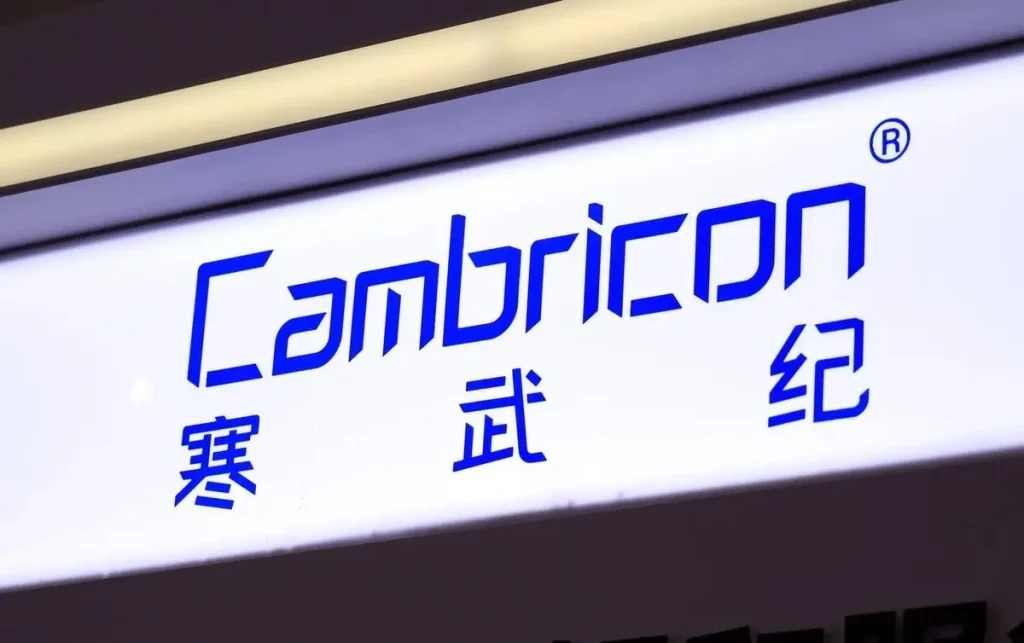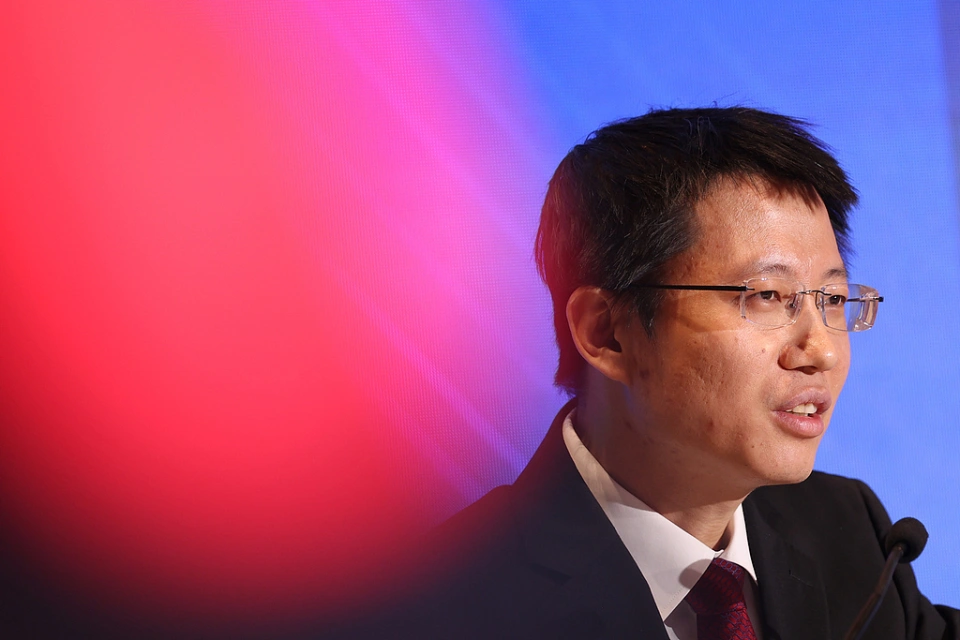The controversy surrounding equity between “stock king” Cambrian Ji and former executives remains deadlocked.
Cambrian recently announced that the company has received a lawsuit from the court, in which plaintiff Liang Jun demands compensation of 4.287 billion yuan for equity incentive losses. At present, the case has been filed and accepted, but has not yet been heard in court.
Liang Jun served as the CTO of Cambrian from 2017 to 2022, but they broke up due to disagreements over the company’s future development. There is a dispute over how to dispose of Liang Jun’s 11.52 million shares of equity, and both parties have filed a lawsuit. Currently, there is still no clear conclusion.

There is a significant gap in the recognition of the value and nature of the equity involved between the two parties. Cambrian demands that Liang Jun transfer the equity for over 50000 yuan and initiate a repurchase lawsuit. With the recent surge of the Cambrian period in the past two years, the latest value of this equity exceeds 15 billion yuan, and Liang Jun has filed a lawsuit on labor disputes.
Sohu Technology has had conversations with several equity lawyers regarding the key dispute surrounding this mutual lawsuit. According to some lawyers’ analysis, Liang Jun’s claim for full compensation is difficult, and he is at a disadvantage in the repurchase case initiated by the Cambrian period, which may require the court to consider comprehensively for trial.
15 billion yuan worth of equity disposal becomes the focus
According to the Cambrian announcement, Liang Jun filed a lawsuit with the Haidian District People’s Court in Beijing based on a labor dispute. His main demand is to confirm the existence of a labor relationship between the two parties from October 18, 2017 to February 10, 2022, and to request Cambrian to compensate for nearly 4.287 billion yuan in equity incentive losses.
The sky high compensation among them has become the focus. The compensation amount is determined based on the 11.52 million shares of Cambrian stocks held by Liang Jun, from January 2, 2024 (the time when his stocks were unlocked) to the highest price of 372 yuan of Cambrian stocks at the time of the lawsuit (October 10, 2024). Based on the Cambrian closing price of 1339.6 yuan on November 4th, the value of this equity is as high as 15.4 billion yuan.
Liang Jun was previously a core technology executive of the Cambrian period. At the end of 2017, Liang Jun, who had worked at Huawei for 17 years, joined Cambricon as CTO and was responsible for the research and mass production of multiple Cambricon chips.
But later on, there were differences between the two sides regarding the future development of the company, and the conflict gradually became apparent. In February 2022, Liang Jun chose to resign, and subsequently there was a dispute between the two sides over how to dispose of his equity holdings.
According to the Cambrian announcement, Liang Jun signed a “shareholding plan” in 2019, indirectly holding Cambrian shares through an employee shareholding platform, corresponding to a capital contribution of 25100 yuan (17.91% shareholding) in Beijing Aixi Technology Center (Limited Partnership) (hereinafter referred to as Aixi Technology) and a capital contribution of 27600 yuan (62.07% shareholding) in Tianjin Xuanhua No. 9 Enterprise Management Partnership (Limited Partnership) (hereinafter referred to as Tianjin Xuanhua). Before the listing of Cambrian, Liang Jun held a total of 3.2% of the shares, corresponding to 11.52 million shares.
After Liang Jun resigned, Hanwu Ji requested him to transfer his shares at the price of the actual paid in cost plus an annual interest rate of 5% based on the “Stock Ownership Plan” and other agreements he signed. However, Liang Jun refused to cooperate in handling the repurchase procedures.
Therefore, the equity incentive related parties of Cambrian sued Liang Jun in 2023, requesting the court to order Liang Jun to cooperate in completing the industrial and commercial registration changes involved in the repurchase. The case was tried in court at the beginning of this year, and the court has not yet made a judgment.
According to Sohu Technology’s query of business information, Liang Jun is still a shareholder of the two employee stock holding platforms mentioned above, and his shareholding ratio has not changed. However, Liang Jun’s equity shares in these two companies have been frozen since 2023.
Liang Jun, on the other hand, finds it difficult to accept the actions of the Cambrian period and feels “angry and dissatisfied” with their demand to transfer their stocks at an extremely low price. He previously stated that he has made significant contributions to the development of the Cambrian and is entitled to corresponding equity incentives.
After the failure of arbitration and litigation regarding the partnership agreement, Liang Jun initiated a labor dispute lawsuit against Cambrian in October last year. At the beginning of this year, Liang Jun released a document disclosing the situation of mutual complaints between the two sides.
Lawyer claims that Liang Jun may have difficulty retaining his equity
Equity lawyer Lu Qinghua told Sohu Technology that Liang Jun’s claim for compensation for equity incentive losses is a labor dispute; On the other hand, Cambrian is seeking to regain its equity, which is a commercial dispute, and these are two different legal relationships in litigation.
Hanwu Ji also disclosed in the announcement that relevant parties have sued Liang Jun to transfer his shares, based on the provisions of the “Shareholding Plan”: if the shareholder resigns during the period when their shareholding rights cannot be disposed of, the repurchase condition will be triggered, and their shareholding rights should be repurchased according to the agreement.
Hanwu Ji stated that the lawyer commissioned by the company analyzed and believed that Liang Jun resigned in early 2022 during the period when his shareholding rights could not be disposed of. According to the provisions of the “Shareholding Plan” signed by Liang Jun himself, his shareholding benefits should be repurchased according to the agreed procedures and prices. Liang Jun is now suing for compensation for equity incentive losses, which is inconsistent with the provisions of the “Shareholding Plan” he signed.
Lawyer Chen Chaoming, Senior Partner and Director of the Capital Market Legal Affairs Center at Yingke Shenzhen Law Firm, told Sohu Technology that the period during which they cannot be disposed of generally refers to a specific time period specified in the equity plan or relevant agreement that restricts employees from transferring, selling, pledging, or otherwise disposing of their shares.
From the perspective of legal provisions, during the period when the company cannot be disciplined, if there is an agreement, it shall be in accordance with that agreement; otherwise, it shall be in accordance with the relevant lock up period regulations of the Company Law and the China Securities Regulatory Commission. This is also a dual constraint. If the company’s agreed time exceeds the lock up period, then the company’s agreement shall prevail; if the company’s agreed time is within the lock up period, then the lock up period shall prevail, “said Chen Chaoming.
However, Lu Qinghua mentioned to Sohu Technology that the specific agreement on the aforementioned “non disciplinary period” was not disclosed by Cambrian, which may be the key in this lawsuit.
She analyzed that if the ‘non disciplinary period’ only refers to the period before the listing of Cambrian, then Liang Jun should be able to take away the stocks; If it refers to the lock up period of the stock, Liang Jun cannot take away the stock because Cambrian was listed without profit, and the stock was only partially unlocked in 2024. Liang Jun resigned in March 2022. If the agreement is unclear, there are multiple possibilities
It is worth noting that Liang Jun had previously attempted to overturn the partnership agreement he had signed, attempting to refuse to repurchase and preserve his equity.
Han Wuji mentioned that after Liang Jun resigned from the company, his equity interests were repurchased according to the provisions of the “Shareholding Plan”. He filed two cases, requesting confirmation that the arbitration clause in the latest version of the “Partnership Agreement” signed by him on the employee shareholding platform Tianjin Xuanhua was not valid, and requesting the revocation of the latest version of the “Partnership Agreement” signed by him on the employee shareholding platform Aixi Technology.
After trial, the court and arbitration institution found that Liang Jun acknowledged that the signatures on the documents were all his own, and that Liang Jun’s request lacked factual and legal basis. Both cases rejected Liang Jun’s request, and the judgment document has taken legal effect.
Chen Chaoming believes that this means that Liang Jun may not have fully understood the legal nature and subsequent restrictions when signing the partnership agreement, or may have had a full understanding, but believed that he could persist until the end and would not resign.
However, no matter how the partnership agreement is amended, as long as the person signs it and there is no coercion, fraud, or other circumstances, the court will generally consider it true and valid. “Chen Chaoming analyzed that from the outcome of the lawsuit, the relevant provisions of the partnership agreement may be unfavorable to Liang Jun.
Regarding the direction of this repurchase case, Chen Chaoming believes that the possibility of Cambrian winning is relatively high, as there are clear repurchase terms and the effectiveness of the partnership agreement has been confirmed by relevant arbitration and courts. In other words, Liang Jun may find it difficult to maintain his equity.
Can the compensation of 4.3 billion yuan be supported?
Although not satisfied with Cambricon’s repurchase policy, Liang Jun did not directly sue for equity, but instead sued on the grounds of labor disputes, demanding that Cambricon compensate for nearly 4.3 billion yuan in equity incentive losses, which is equivalent to 2.7 times Cambricon’s net profit in the first three quarters of this year.
According to the announcement of Cambrian, Liang Jun believes that in February 2022, Cambrian failed to fulfill the provisions of the letter of intent for employment regarding annual salary, equity grant, etc., and did not provide working conditions as stipulated in the labor contract, and was forced to terminate the labor contract. On January 2, 2024, the stocks indirectly held by Liang Jun were unlocked. He had previously applied for a reduction in holdings, but Cambrian did not cooperate with the reduction. Liang Jun initiated a lawsuit based on this.
Lu Qinghua believes that Liang Jun advocates equity incentives as a component of labor compensation, and choosing labor dispute litigation may be a litigation strategy.
Chen Chaoming believes that Liang Jun’s lawsuit based on labor disputes is a further strategy adopted after challenging the provisions of the “Stock Ownership Plan” and partnership agreement, hoping to shift the legal relationship from a commercial contract dispute to a labor dispute, bypass unfavorable contract terms, and find legal basis for compensation for losses. For him, this is currently a more suitable and even the only option.
If Liang Jun sues to claim equity, it will be handled through civil litigation. Based on the subject matter involved, the litigation costs are very high, possibly worth tens of millions, and even if he loses the case, he still needs to pay this fee. Choosing a labor dispute, the cost is very low, which is relatively beneficial for Liang Jun, “said Chen Chaoming.
So, the key question is, can Liang Jun’s claim for nearly 4.3 billion yuan in compensation for losses be supported?
Chen Chaoming believes that whether the court will support Liang Jun’s demands requires confirmation of at least four aspects: firstly, determining that the effectiveness of the letter of intent for employment is higher than that of the “shareholding plan”, or that the relevant provisions have not been completely replaced by the “shareholding plan”; The second is to determine that the equity incentive involved in the case belongs to labor remuneration; Thirdly, it is determined that Liang Jun’s resignation was due to forced termination of the labor contract, and there was fault on the part of Cambrian; The fourth is to determine that the non cooperation of Cambrian in reducing holdings constitutes a breach of contract or infringement.
The letter of intent for employment in 2017 is a front-end document for establishing preliminary labor relations and salary frameworks, while the 2019 “Shareholding Plan” and partnership agreement are back-end documents specifically designed to implement equity incentives. Generally speaking, in terms of legal effect, the latter is usually seen as a refined supplement or even a change to the former, with higher priority for application, “Chen Chaoming mentioned.
Han Wuji also mentioned in the announcement that the equity incentive provisions in Liang Jun’s letter of intent for employment have been recognized by the effective arbitration award. Regardless of the interpretation of the letter of intent, both parties can agree to make changes. Liang Jun had already understood the basic content of the “Shareholding Plan” when signing it and agreed to determine the specific conditions for accepting the equity incentive based on this content, and should be bound by the relevant documents he subsequently signed.
For other aspects, there are still differences between the two sides at present. As for the nature of the resignation, Liang Jun claimed that it was a forced termination of the labor contract, while the Cambrian notice stated that he proposed to terminate the contract. How to confirm it requires more evidence from both parties.
Regarding whether equity incentives will be considered as labor compensation, Chen Chaoming stated that this also requires Liang Jun to prove that equity incentives are completely a substitute for labor compensation, and to bear a heavier burden of proof to prove that incentives are directly related to labor contributions.
Chen Chaoming believes that if all these aspects can be identified, Liang Jun’s equity incentive compensation claim may receive support, but it may not necessarily meet his claimed compensation amount. The court may, based on the principle of fairness, determine the amount of compensation at its discretion
However, some lawyers have analyzed that the stock price of Cambrian has far exceeded the price claimed by Liang Jun, so if Liang Jun’s compensation claim is supported, the compensation amount may be supported by the court.
The aforementioned lawyers have mentioned the complexity of the case between Cambrian and Liang Jun, which may require the court to consider comprehensively during the trial. This exposes the double-edged sword of equity incentives, as well as the complex interweaving of multiple factors such as corporate governance, institutional deficiencies, and human wealth.
Hanwu Ji stated that he will make every effort to address the improper demands of the departing executives towards the company. It is expected that this lawsuit will not affect the profits of the current period, and the impact on future profits will need to be further evaluated based on the effective judgment of the court in the aforementioned case. Liang Jun has chosen to continue his entrepreneurship in the chip field and now has to devote his energy to dealing with lawsuits.











暂无评论内容